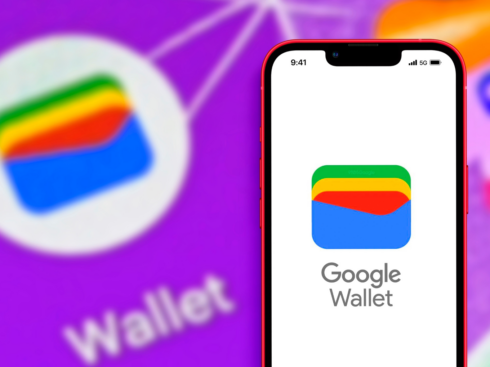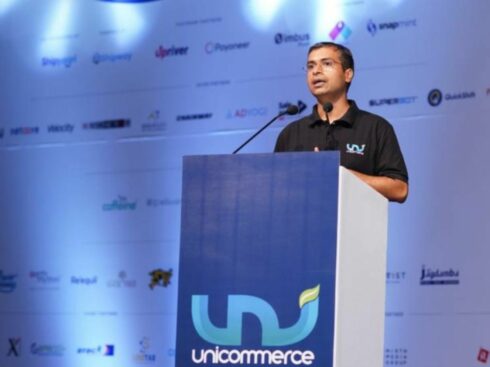
SUMMARY
The Practical Implementations Of Blockchain Technology Are Still Relatively Young But Has The Potential To Change The World
If you’ve attempted to dive into this mysterious thing called blockchain, you’d be forgiven for recoiling in horror at the sheer opaqueness of the technology that is often used to frame it. So, before we get into what a cryptocurrency is and how blockchain technology might change the world, let’s discuss what blockchain is.
What Blockchain Actually Is?
The blockchain is an undeniably ingenious invention – the brainchild of a person or group of people known by the pseudonym, Satoshi Nakamoto. But since then, it has evolved into something higher, and the main question every single person is asking is: What is Blockchain?
By allowing digital information to be distributed but not copied, blockchain technology created the backbone of a new type of internet. Initially devised for the digital currency, Bitcoin, the tech community is now finding other potential uses for the technology.
Bitcoin has been called “digital gold,” and for a good reason. To date, the total value of the currency is close to $9 Bn. And Blockchains can make other types of digital value. Like the internet (or your car), you don’t need to know how the blockchain works to use it. However, having a basic knowledge of this new technology shows why it’s considered revolutionary.
In the simplest terms, a blockchain is a digital ledger of transactions, not unlike the ledgers we have been using for hundreds of years to record sales and purchases. The function of this digital ledger is, in fact, pretty much identical to a traditional ledger in that it records debits and credits between people.
“Bitcoin the currency, I think, is going to go nowhere … the blockchain is a technology which we’ve been studying, and yes it’s real.” —Jamie Dimon on CNBC.
Traditional Database Services
With conventional transactions, a payment from one person to another involves some kind of intermediary to facilitate the transaction. Let’s say Rob wants to transfer $20 to John. He can either give him cash in the form of a $20 note, or he can use some banking app to transfer the money directly to his bank account. In both cases, a bank is an intermediary verifying the transaction: Rob’s funds are confirmed when he takes the money out of a cash machine, or they are verified by the app when he makes the digital transfer. The bank decides if the transaction should go ahead. The bank also holds the record of all transactions made by Rob and is solely responsible for updating it whenever Rob pays someone or receives money into his account. In other words, the bank holds and controls the ledger, and everything flows through the bank.
That’s a lot of responsibility, so it’s important that Rob feels he can trust his bank otherwise he would not risk his money with them. He needs to feel confident that the bank will not defraud him, will not lose his money, will not be robbed, and will not disappear overnight. This need for trust has underpinned pretty much every major behavior and facet of the monolithic finance industry, to the extent that even when it was discovered that banks were being irresponsible with our money during the financial crisis of 2008. The government (another intermediary) chose to bail them out rather than risk destroying the final fragments of trust by letting them collapse.
How Blockchain Operate?
Blockchains operate differently in one key respect: they are entirely decentralized. There is no central clearing house like a bank, and there is no central ledger held by one entity. Instead, the ledger is distributed across a vast network of computers, called nodes, each of which holds a copy of the entire ledger on their respective hard drives. These nodes are connected to one another via a piece of software called a peer-to-peer (P2P) client, which synchronizes data across the network of nodes and makes sure that everybody has the same version of the ledger at any given point in time.
When a new transaction is entered into a blockchain, it is first encrypted using state-of-the-art cryptographic technology. Once encrypted, the transaction is converted to something called a block, which is basically the term used for an encrypted group of new transactions. That block is then sent (or broadcast) into the network of computer nodes, where it is verified by the nodes and, once verified, passed on through the network so that the block can be added to the end of the ledger on everybody’s computer, under the list of all previous blocks. This is called the chain. Hence the tech is referred to as a blockchain.
Once approved and recorded into the ledger, the transaction can be completed. This is how cryptocurrencies like Bitcoin work.
What Are The Advantages Of Blockchain Tech Over A Traditional System?
The answer is trust. As mentioned before, with the banking system it is critical that Rob trusts his bank to protect his money and handle it properly. To ensure this happens, enormous regulatory systems exist to verify the actions of the banks and ensure they are fit for purpose. Governments then regulate the regulators, creating a sort of tiered system of checks whose sole purpose is to help prevent mistakes and bad behavior.
In other words, organizations like the Financial Services Authority exist precisely because banks can’t be trusted on their own. And banks frequently make mistakes and misbehave, as we have seen too many times. When you have a single source of authority, power tends to get abused or misused. The trust relationship between people and banks is awkward and precarious: we don’t really trust them, but we don’t feel there is much alternative.
Blockchain systems, on the other hand, don’t need you to trust them at all. All transactions (or blocks) in a blockchain are verified by the nodes in the network before being added to the ledger, which means there is no single point of failure and no single approval channel. If a hacker wanted to successfully tamper with the ledger on a blockchain, they would have to simultaneously hack millions of computers, which is almost impossible. A hacker would also be pretty much unable to bring a blockchain network down, as, again, they would need to be able to shut down every single computer in a network of computers distributed around the world.
Practical Implementations of Blockchain Technology:
- Smart contracts (Ethereum): Probably the most exciting blockchain development after Bitcoin, smart contracts are blocks that contain code that must be executed for the contract to be fulfilled. The system can be anything, as long as a computer can execute it, but in simple terms, it means that you can use blockchain technology (with its independent verification, trustless architecture and security) to create a kind of escrow system for any type of transaction.
- Cloud storage (Storj): Cloud computing has revolutionized the web and brought about the advent of Big Data which has, in turn, kick-started the new AI revolution. But most cloud-based systems are run on servers stored in single-location server farms, owned by a single entity (Amazon, Rackspace, Google etc).
- Digital identification: Two of the most significant issues of our time is to identify theft and data protection. With vast centralised services such as Facebook holding so much data about us, and efforts by various developed-world governments to store digital information about their citizens in a central database, the potential for abuse of our personal data is terrifying. Blockchain technology offers a potential solution to this by wrapping your key data up into an encrypted block that can be verified by the blockchain network whenever you need to prove your identity.
- Digital voting: Highly topical in the wake of the investigation into Russia’s influence on the recent U.S. election, digital voting has long been suspected of being both unreliable and highly vulnerable to tampering. Blockchain technology offers a way of verifying that a voter’s vote was successfully sent while retaining their anonymity.
Conclusion
Although blockchain technology is not that new of technology, the practical implementations that go beyond the traditional digital payment system are still relatively young.
The IoT requires us all to solve a lot of new challenges. Providing technologies that allow for secure, fast transactions between the participants in that new world is just one of those obstacles. The traditional model of having a mediator between service and user must evolve.
As with all new technologies, these will also introduce their own set of security issues. Large-scale attacks on smart contracts have yet to materialize, but we’ve already seen the first reports on vulnerabilities that could lead to them. Don’t be afraid of new technologies, but use common sense when you adopt them in your environment.


























